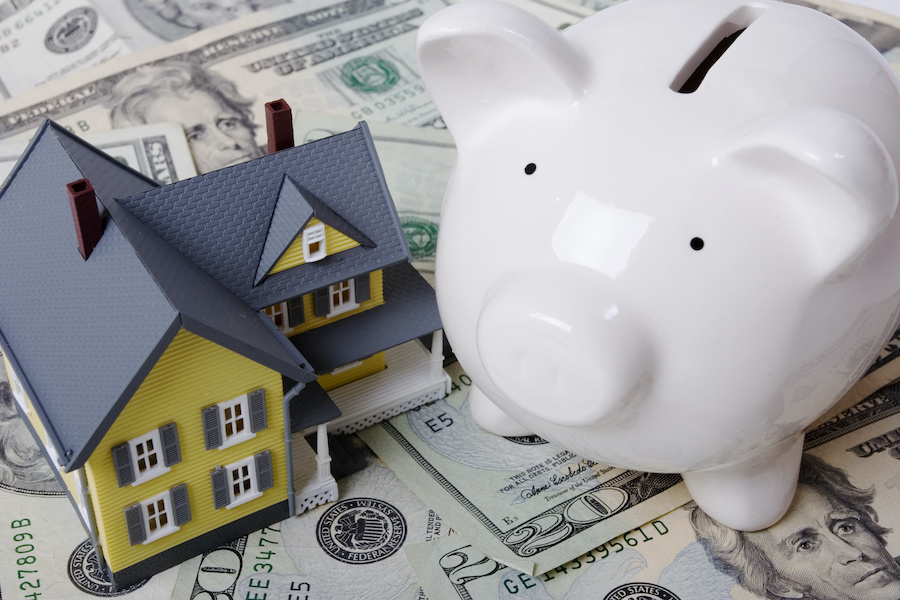

Mortgages are an essential consideration for most people buying, selling, or simply owning a home. While the concept of borrowing from a bank or lender appears simple - home loans can be a lot harder to understand than you might first think. Realestate.com.kh is here to help you understand mortgages in Cambodia!
What is a mortgage?
A mortgage is a loan, quite simply, with your house and land used as security for that loan. That means, if you don't pay back the loan in the prescribed time frame, the lender (usually a bank) has the right to foreclose your home.
Foreclosing means taking possession of a mortgaged property when the mortgagor fails to keep up their mortgage payments. Basically, the bank takes your home and sells it to settle the debt. The loan is secured by a “lien” (in other words, the "mortgage") against the property in question (your house and land). The lender still doesn't own the house, you do. But if you can't pay, they have the lien with your house as their collateral/security. You still have full ownership rights - yet subject to the mortgage. When looking for your first mortgage is it most important to consider two things:
1. What you can actually afford?
2. What you can borrow?
Why are these two questions different? Because, the lender/bank is never going to look at how much you spend in a month on partying with friends, or movies and dinner, or how happy you'll be with a big payment.
In reality, they may well be willing to loan you considerably more than you think you can spend on your home mortgage. You must consider this seriously - because only you know how much flexibility your lifestyle and spending habits have, which ultimately determines how much you can afford when searching for a new home.
If you miscalculate this - you risk not being able to satisfy payments and ultimately losing your new home.
You can also access the latest editions of the Credit Consumer Index Report published by Credit Bureau (Cambodia) Co Ltd (CBC).
If you are unsure of what the different property titles are, have a read of our guide.

A lender/bank will look at your income, and future income potential vs. your proposed debt, as well as your bank savings and credit history. Having considered these factors, the bank will then determine how much of a risk you'd be for the lender/bank to take on and issue a loan.
Meanwhile, they look at the value of the house you want to buy, and potential future value, and compare against the interest rate of the loan you'll be getting. After this analysis, the bank/lender arrives at a loan amount that they consider a healthy risk.
If all things go to plan, this loan amount will match (or potentially exceed) what you need to satisfy your down payment and the final price of the house you want to purchase.
What are the components of a mortgage?
There are three basic components to any mortgage. These are the home loan amount, interest rate, and loan term.
- The loan amount: The loan amount is the principal amount that you want to borrow. Banks in Cambodia generally give a loan of up to 70% of the property value.
- The interest rate: The interest rate is very important to understand! It is the percentage of annual interest that you have to pay on the total loan amount. It can be a fixed rate, a flexible rate, or a combination of both.
- The loan term: The loan term is the duration/length of time that you take to completely repay the loan. Loans generally range from 15 to 30 years in Cambodia.
If you combine the principal loan amount and the interest amount, you will then know the overall loan amount. Most home loans are usually repaid via monthly instalments. The repayment comprises two parts or portions:
One part is for the repayment of the principal amount. The other part is for the repayment of the interest.
If you want to know which are some of the best banks in Cambodia- read our Ultimate guide to banking for foreigners in Cambodia.
How do I speed up my loan repayment?
Don’t automatically decrease your repayments just because the interest rates fall. For many loaners, as soon as bank fees and interest rates decrease, and minimum repayments are lowered accordingly, this immediately means a happy camper - with more money in the pocket and less for the bank.
However, this is short-sighted. Instead of pocketing the cash, if you keep your repayments at the same level when the interest rates are falling - because this is a prime opportunity to reduce your principal with each payment and make faster progress satisfying your total loan in the longer term.
As opposed to seeing it as a time to relax your repayments – you should see it as an opportunity to get ahead of the bank and pay back your principal faster.

Test out an “offset account”
If it is possible for your loan, try using an offset account. A mortgage offset account is directly connected to your mortgage and the payable interest on your mortgage month to month will be calculated by deducting what funds exist in your offset account against your loan.
To clarify, here’s an example: if your total mortgage is $200,000 and your offset account currently has $5,000 in it, you will only pay interest on the remaining $195,000. An offset account allows you to save interest while still allowing access to your savings if needed.
For investors, offset accounts are also useful for the preservation of mortgage tax-deductible benefits.
Refinance and get a better run for your money
Maybe you have worked out that your current mortgage is not suitable for your needs and financial circumstances. If this is the case, you need to change your loan quickly before it seriously hurts you.
If you are not sure your current mortgage is right for you, it is best to consult a professional finance broker before it is too late. A well-attuned broker will negotiate with your lender about fees for additional repayments, refinancing, or any other necessary measures to help you save on your loan.
A good broker should identify the perfect terms for you and then negotiate the best rates for that plan.
Make smaller mortgage repayments, more regularly
If you make more payments, naturally these payments will be smaller. But more regular payments, even if they are smaller, will mean ultimately you can pay off your loan faster because you will lessen your interest repayments in the long term.
If you currently repay your mortgage on a monthly basis, try changing to fortnightly loan repayments. Now, your monthly mortgage repayments might equal $2,000 per month, for example. If you can instead pay $1,000 every two weeks, by the end of the year you would have made significant savings on your interest costs and will be a little bit closer to satisfying your overall loan repayment.
Take measures to pay back a little bit more each time
Remember, your “minimum repayment” is exactly that: it is the least possible amount you need to repay each month. So, for most mortgages, there is nothing stopping you from paying more than the minimum necessary payment.
It doesn’t matter if you pay extra regularly, just when you can afford to now and again is still worthwhile. Even a little bit here and there can add up and eventually reduce your mortgage.
When you receive bonuses, tax returns or other monetary gifts you should seriously consider putting this expendable income into your mortgage repayments before it disappears into thin air.

Stay up-to-date on the real estate industry in Cambodia and get real-time updates on real estate news as they happen. Download the Realestate.com.kh App now!
Article by:






Comments